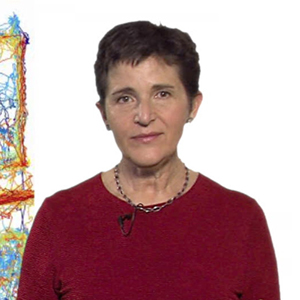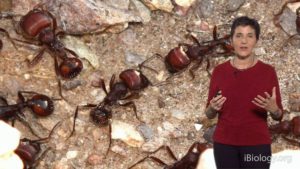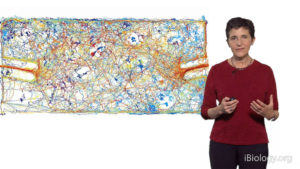Deborah M. Gordon received a B.A. in French from Oberlin College, a M.S. in Biology from Stanford University and a Ph.D. in Zoology from Duke University. Following receipt of her Ph.D., Gordon was a Junior Fellow of the Harvard Society of Fellows and a Research Fellow at the University of Oxford and Imperial College before joining the faculty at Stanford University in 1991.
Currently, Gordon is a Professor of Biology at Stanford University. Her lab studies the evolution of collective behavior using ant colonies as a model. She studies how ant colonies regulate their behavior in response to environmental changes, and how collective behavior is related to ecology, in the desert, in ant-plant interactions in tropical forests, and in the spread of the invasive Argentine ant in northern California. She is also a partner in the “Ants in Space” project designed to learn more about how ants search, information that may be useful in designing search algorithms for groups of robots. Gordon was awarded a Guggenheim Fellowship, and has received several awards for her teaching. Learn more on Dr. Gordon’s labpage at https://web.stanford.edu/~dmgordon/index.htmll






